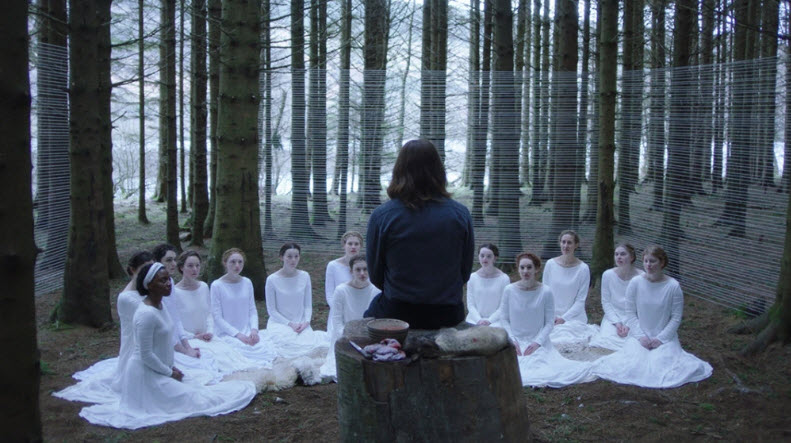Have you ever wondered how different screenwriting is to writing novels or short stories? After concurrently writing a screenplay and novel version of my conquistador fantasy short story ‘Conquist’ (Dreaming Again, Ed. Jack Dann, HarperVoyager), I’ve got a pretty good idea.
The two are very different.
The two are very different.
Obviously, there are similarities. The plot, the characters and the dialogue are important to both. But it’s the differences that strike you when you switch from one to the other. In my experience, the two writing styles often interfere with each other.
Let’s start at a basic level. The action in screenplays is always in the present tense, while the most common tense used in novel narratives is the simple past tense. This alone can drive you a little nuts when switching between novels and screenplays. Whatever tense you’re currently writing in becomes habitual; it feels natural and intuitive. You do it without thinking. And worse, unless you deliberately read for tense, you simply won’t catch all the times when you’ve incorrectly got past tense in the screenplay action or present tense in the novel narrative. And, strangely, when you make the change, at first it feels wrong somehow.
The number of words you have to play with in a screenplay is far less than what you have at your disposal in a novel. My screenplay for Conquist is around 22,000 words while my novel version is 86,000 words. In fact, the movie industry doesn’t even talk about the number of words. It talks about pages. The average movie screenplay is around 110 pages, which are formatted in such a way that a page represents around one minute of screen time. So, the 110 pages represent just under two hours, which is somewhere near the average length of a movie. You need to be aware, though, that this restriction on the number of pages only really applies to spec scripts—that is, the ones that are written on-spec without a contract. If you’re Tarantino, you can go for broke.
Let’s start at a basic level. The action in screenplays is always in the present tense, while the most common tense used in novel narratives is the simple past tense. This alone can drive you a little nuts when switching between novels and screenplays. Whatever tense you’re currently writing in becomes habitual; it feels natural and intuitive. You do it without thinking. And worse, unless you deliberately read for tense, you simply won’t catch all the times when you’ve incorrectly got past tense in the screenplay action or present tense in the novel narrative. And, strangely, when you make the change, at first it feels wrong somehow.
The number of words you have to play with in a screenplay is far less than what you have at your disposal in a novel. My screenplay for Conquist is around 22,000 words while my novel version is 86,000 words. In fact, the movie industry doesn’t even talk about the number of words. It talks about pages. The average movie screenplay is around 110 pages, which are formatted in such a way that a page represents around one minute of screen time. So, the 110 pages represent just under two hours, which is somewhere near the average length of a movie. You need to be aware, though, that this restriction on the number of pages only really applies to spec scripts—that is, the ones that are written on-spec without a contract. If you’re Tarantino, you can go for broke.
The word limits in a screenplay affect all aspects of the writing. To come in at 110 pages, you need to have extreme focus from a plot point of view and write with a maniacal tightness. While novel writers obviously also need to make choices about what to include and what to cut, screenwriting forces you to dial this process up to warp drive. There’s nowhere to hide. Going over 120 pages, for example, can often mean you’re dismissed as an amateur before you even get to first base.
And if you think manuscript requirements for novels or short stories are over-prescriptive, you ain’t seen nothing yet. The formatting requirements of screenplays appear overwhelming at first. I don’t know how they managed it in the Golden Age of Hollywood, but I wouldn’t even think of writing a screenplay without a software package like Final Draft.
And if you think manuscript requirements for novels or short stories are over-prescriptive, you ain’t seen nothing yet. The formatting requirements of screenplays appear overwhelming at first. I don’t know how they managed it in the Golden Age of Hollywood, but I wouldn’t even think of writing a screenplay without a software package like Final Draft.
So how do you turn a novel or short story into a screenplay which actually becomes a movie? Well, clearly, one way is to first get your story published in Aurealis! C S McMullen's story ‘The Other-faced Lamb’ that appeared in Aurealis #82 has been released as a major motion picture The Other Lamb.
This blog appeared in a different form as an Editorial in Aurealis #124.
This blog appeared in a different form as an Editorial in Aurealis #124.



 RSS Feed
RSS Feed